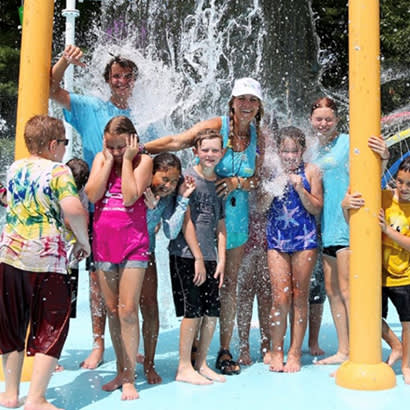
For an enhanced digital experience, read this story in the ezine.
Recognizing one summer camper’s parents at a social event this spring, I was happy to introduce myself as a recreation department staff member, and to say our staff was glad to see their child was already registered for our full 2022 summer session. Eyes brightened, smiles grew on their faces, and I learned our camp is the only camp or school program their child never faked sickness to avoid attending for a day. We laughed, discovered what else we had in common and continued to circulate through the event. Thinking back on how our town’s summer camp was such a comfortable place for their child, I found three main themes:
First, “downtime” is planned and carefully orchestrated, so only a few campers are “down” at any given time. Bio breaks, time to fill water bottles and transition times are preplanned, and the campers are familiarized with the daily agenda, which includes these less structured times. Camp staff are aware of how to keep the children occupied, with time during lunch being arranged so as not to overlap other groups in the concession stand lines. Minimized unstructured time removes opportunities for children to lose their group cohesiveness.
Second, considerations are always made as to how teams for group activities are formed. Participants’ social interactions used to be the main consideration when dividing into camp activity groups. Now, effective summer camp groups are formed by age, grade level, and skills or abilities.
Finally, we understand some campers are there because of adult work schedules or other family considerations. Many times, these participants arrive with less enthusiasm than other children who were included in the process of selecting a camp program.
Each aspect of creating a summer camp environment that is conducive to excellent experiences, rewarding for the child, and gives parents and caregivers a strong sense of value-for-dollar, can bring stress to recreation professionals. Recognizing ways to alleviate stress means looking in new places, in new ways.
One day during summer camp last year, I was aware of a camper having a rough day, or more accurately, a “meltdown.” My first thoughts went to, “How can I help? Should I intervene?” With my experiences as an educator and school administrator, I was instantly drawn to the situation. I watched and listened from a close distance, hearing how the camp counselor was handling the situation. As they spoke in several short sentences, in a calming voice, and led the child to the vicinity of a picnic table in the shade, I overheard the most noteworthy sentence of all: “There’s nothing going wrong here that we can’t fix.” I repeated that in my head often this past year. I hope these summer camp planning considerations and the wise quote overheard during a difficult situation help you to develop a rewarding summer camp experience to ensure every child has an experience “not to be missed.” Remember, there’s nothing going wrong that you can’t fix!
Cris Blackstone, Community Communications Coordinator, Newmarket Recreation Department.

